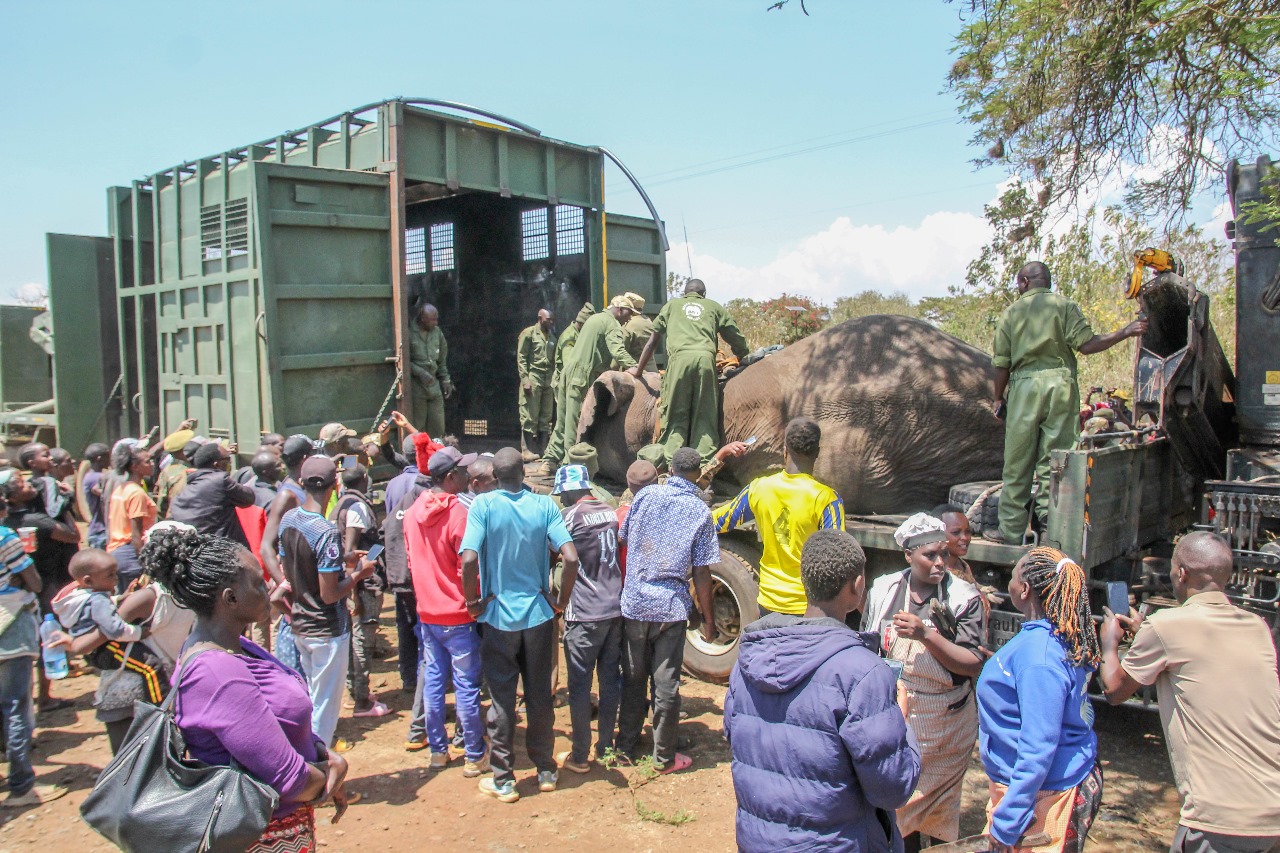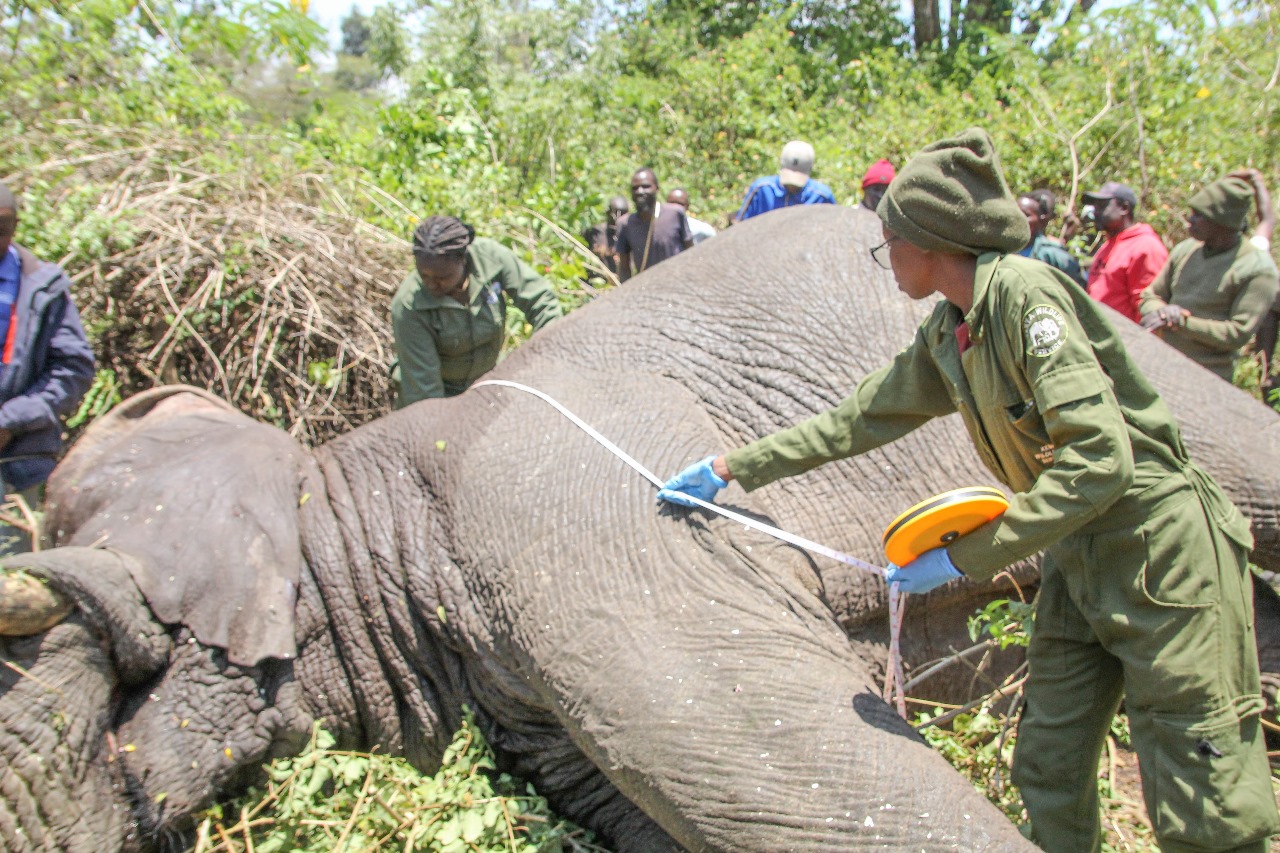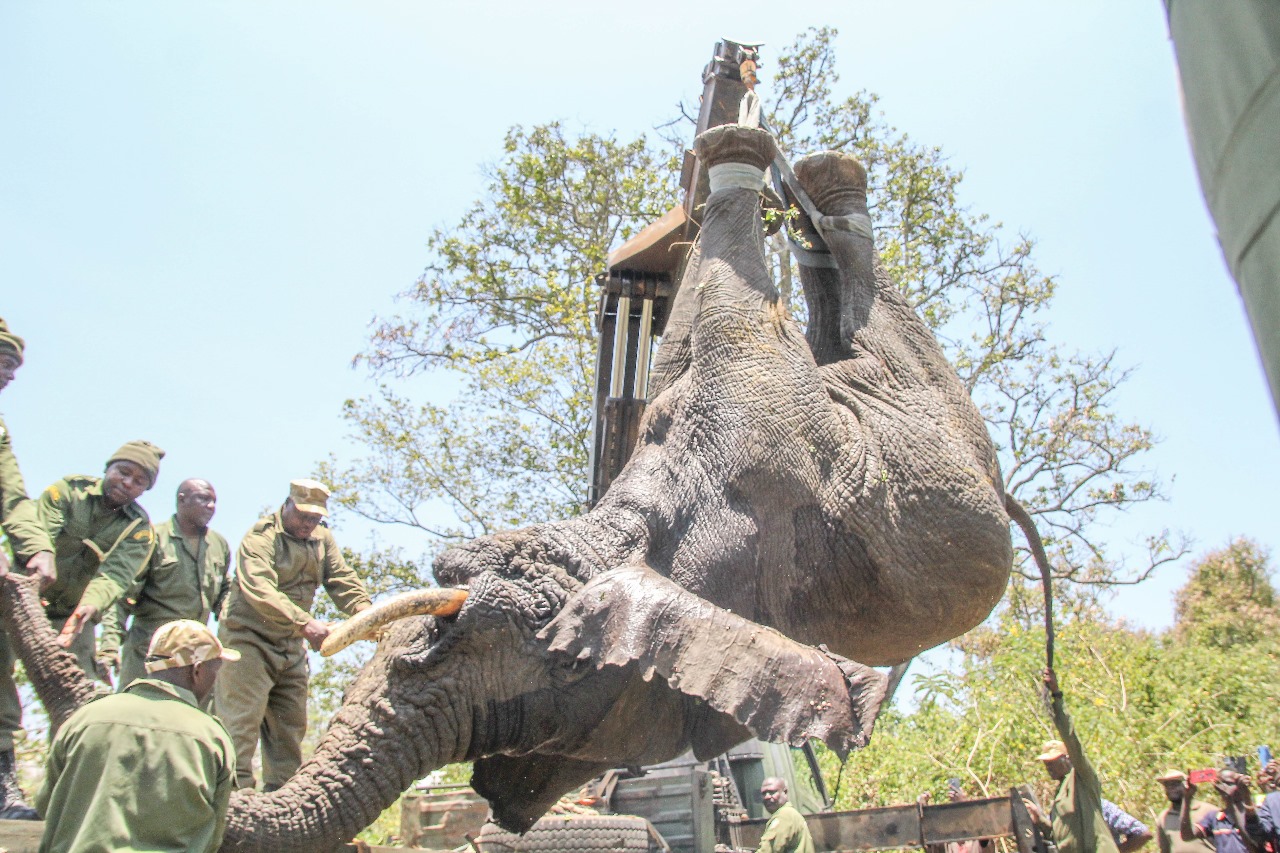
The Kenya Wildlife Service (KWS) has reinforced its commitment to reducing human-wildlife conflict, as expanding agricultural activities increasingly encroach on traditional wildlife habitats.
This challenge has become particularly evident in the Imenti Forest region, where interactions between wildlife and local communities have intensified.
Addressing the issue remains a key priority for KWS.
To mitigate conflicts, the agency continues to implement strategic measures, including fencing and, where necessary, the relocation of problematic animals.
Recently, KWS’s Veterinary and Capture Unit successfully relocated a troublesome bull elephant from Kithoka Village near Imenti Forest to Tsavo East National Park, Meru, more than 400 kilometers away.
The elephant had repeatedly breached electric fences and raided local crops, posing a threat to the livelihoods of nearby residents.
“Known for their intelligence and strong memory, elephants can pass on learned behaviour,” KWS explained.
KWS added that relocating the bull prevents him from teaching other elephants his fence-breaking tactics.

The relocation also ensures the animal’s well-being. Tsavo East National Park spans 13,700 square kilometers, offering the elephant a vast natural habitat to thrive.
“This operation reflects KWS’s deep understanding of elephant behaviour, ecology, and social dynamics,” KWS said, noting that the effort aligns with its broader goal of promoting sustainable coexistence between people and wildlife.
Human-wildlife conflict has emerged as a significant concern in Kenya, particularly in regions where communities and wildlife share overlapping spaces.
Crop raids, property damage, and occasional threats to human safety underscore the need for proactive measures. KWS has emphasised that managing these conflicts requires both practical interventions and a nuanced understanding of animal behaviour.
The successful relocation in Meru demonstrates the effectiveness of such interventions. Strategic fencing acts as the first line of defence against wildlife intrusion. When this fails, careful relocation ensures the safety of both humans and animals.
KWS has urged local communities to remain vigilant and report instances of problematic wildlife. KWS stressed that its approach balances conservation priorities with community welfare.
“We are committed to promoting sustainable coexistence between people and wildlife,” KWS said, reaffirming its role as the guardian of Kenya’s rich natural heritage.
This case also highlights the intelligence and adaptability of elephants. Their capacity to learn from experience and teach peers makes conflict management particularly complex.
By relocating the bull elephant before he could influence others, KWS has taken a proactive step in preventing future crop raids and protecting local livelihoods.
The agency’s work in Meru forms part of a larger national strategy aimed at harmonising human development with wildlife conservation.
As agricultural areas continue to expand, KWS acknowledges that human-wildlife interactions will remain a critical issue, necessitating ongoing vigilance and innovative management approaches.




















